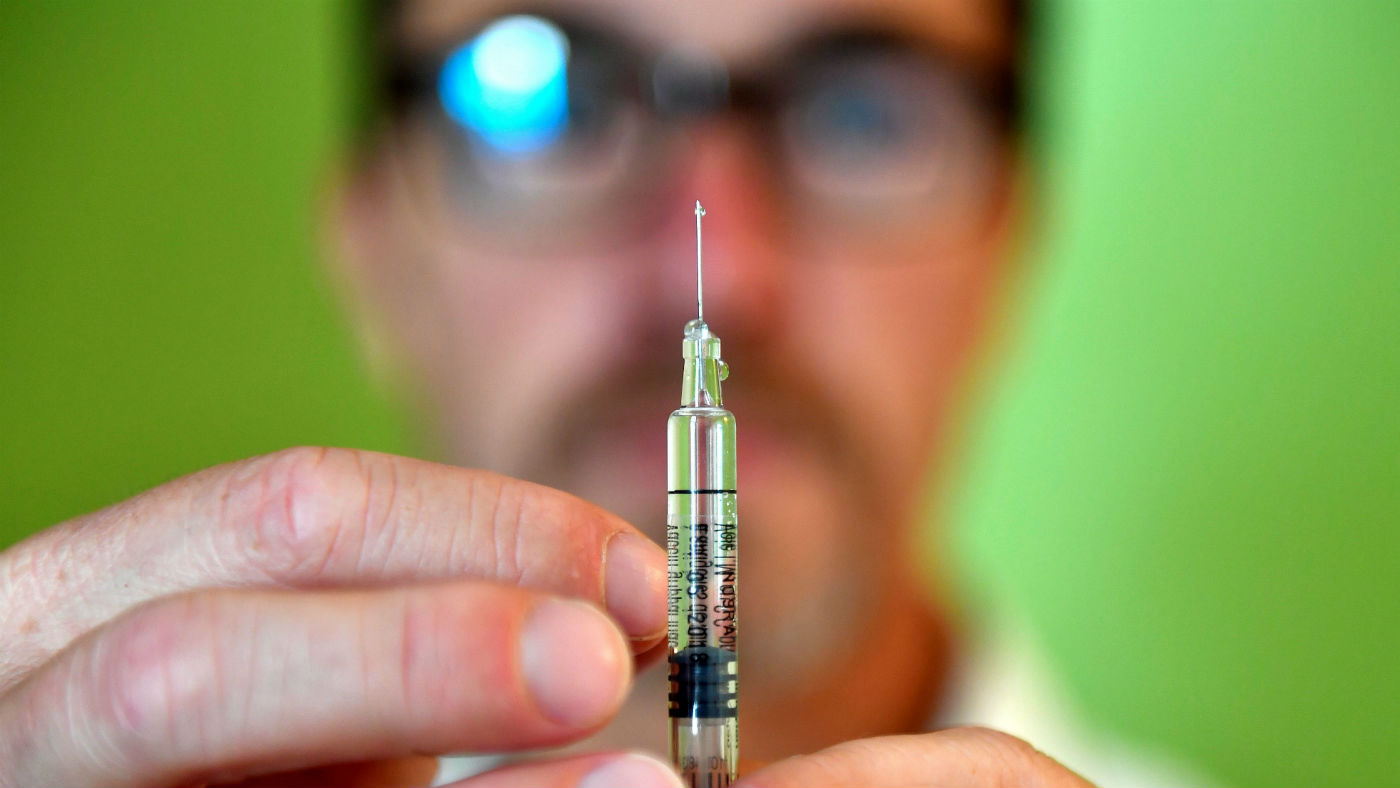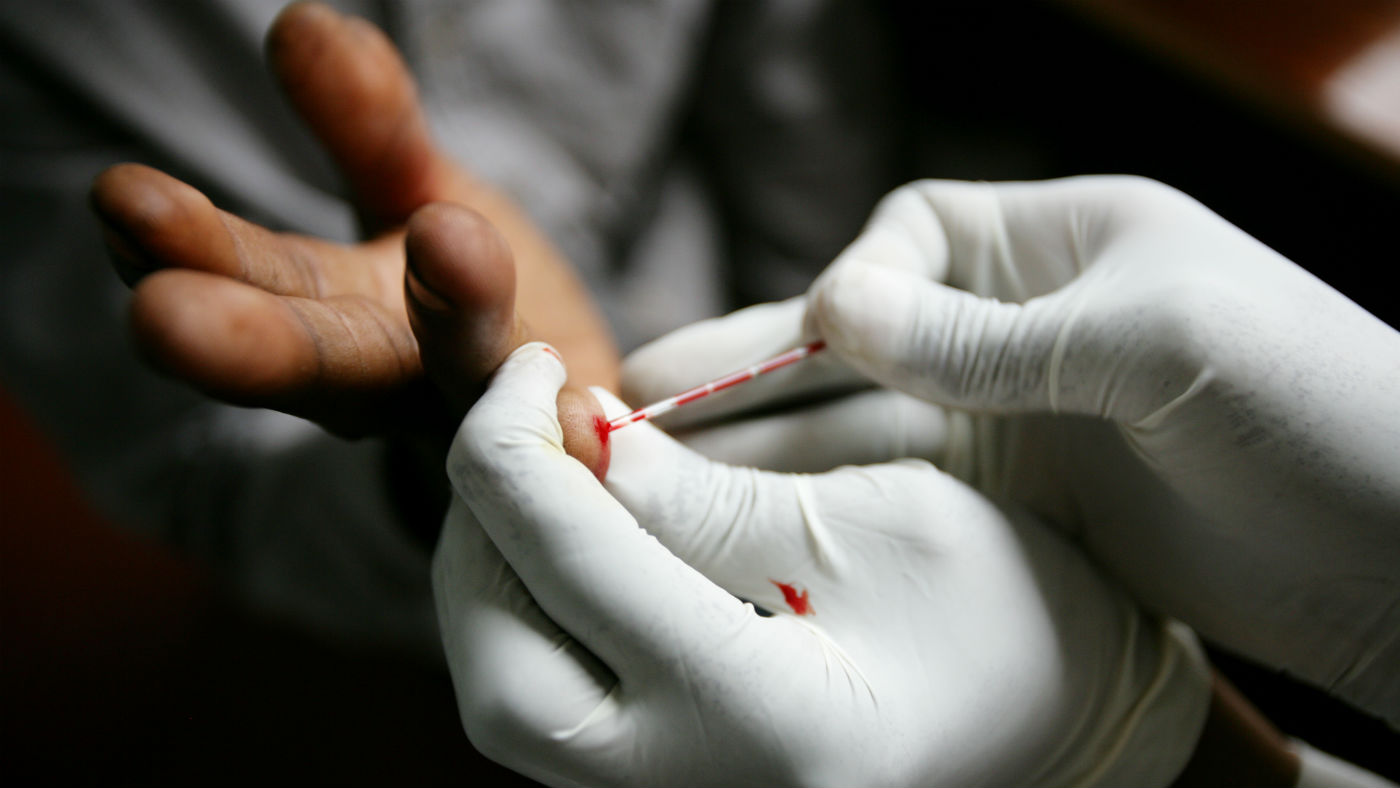Will male contraceptive injections transform birth control?
Men could soon have more contraceptive choices, but many question why it's taken this long

A free daily email with the biggest news stories of the day – and the best features from TheWeek.com
You are now subscribed
Your newsletter sign-up was successful
Several new male contraceptive methods currently in development will soon allow couples to share the burden of birth control.
An injection called Vasalgel is furthest along in clinical trials and promises to revolutionise contraception. "This is a total game changer," says Aaron Hamlin, executive director of the Male Contraception Initiative.
What is it and when will it be available?
The Week
Escape your echo chamber. Get the facts behind the news, plus analysis from multiple perspectives.

Sign up for The Week's Free Newsletters
From our morning news briefing to a weekly Good News Newsletter, get the best of The Week delivered directly to your inbox.
From our morning news briefing to a weekly Good News Newsletter, get the best of The Week delivered directly to your inbox.
It is a long-term, non-hormonal contraceptive injection that is administered via the scrotum. A polymer is injected into a man's vas deferens, blocking sperm from leaving the body with no impact on orgasm or ejaculation.
Following successful animal testing, human trials are expected to begin next year. If the results are as positive, Vasalgel could hit the US market as early as 2018.
Early testing has shown that the process is easily reversible – unlike a vasectomy – but further trials are needed to prove that it has the same effect in humans.
What has the response been?
A free daily email with the biggest news stories of the day – and the best features from TheWeek.com
"New contraceptive methods, including for men, are needed and much welcomed. The more options the better," says Susan Cohen, from the Guttmacher Institute, a non-profit organization which works to advance reproductive health.
Vasalgel has a number of advantages over female contraception. It is non-hormonal, which eliminates side-effects like mood swings that can be caused by the Pill. It also doesn't interfere with the production of sperm itself, whereas some female birth control does interfere with ovulation, says the Daily Beast.
It will give men options beyond condoms and vasectomies – and will take the financial, emotional and physical burden of family planning off women. "The responsibility has fallen disproportionately on women’s shoulders (and nether-regions) for too long," says The Guardian's Jessica Valenti.
But will men want to use it?
"Do you know how hard it is to get a man to wear a condom?" asks Valenti, who says she isn't convinced that a man "who refuses to roll a latex sheath over his penis is going to put his legs in the stirrups and let a doctor pierce his scrotum."
But Elaine Lissner, the executive director of the organisation behind Vasalgel says whether men use the contraceptive is beside the point. "Not all men will use it, but not all women use birth control either," she said, "The point is to have something for everybody. Right now men don't have a lot of options."
What else is in development?
Gendarussa, which works by interfering with the sperm's ability to fertilise an egg, is another non-hormonal contraceptive and has gone through Phase II trial in Indonesia. US scientists are also developing an anti-Eppin agent that stops sperm from being able to swim.
The "clean sheets pill" – which inhibits ejaculation but allows the sensation of orgasm – is another method currently being developed in London. Although still in the early stages, it promises to be a fast-acting male contraceptive with the potential to drastically reduce male-to-partner transmission of HIV.
Why is it taking so long?
"It's to do with maths," Dr Allan Pacey, Chair of the British Fertility Society told the Daily Telegraph. "Both the methods and the market are already there. Ultimately, it's now about convincing the venture capitalists to step up, but it's extremely expensive."
The pharmaceutical industry has long been wary of investing in new methods of birth control – particularly long-term ones – as it would take away from the lucrative oral contraceptive market.
As the Daily Beast's Samantha Allen says: "Why sell a flat-screen television to a man, after all, when you can rent one to a woman for a decade?"
-
 How the FCC’s ‘equal time’ rule works
How the FCC’s ‘equal time’ rule worksIn the Spotlight The law is at the heart of the Colbert-CBS conflict
-
 What is the endgame in the DHS shutdown?
What is the endgame in the DHS shutdown?Today’s Big Question Democrats want to rein in ICE’s immigration crackdown
-
 ‘Poor time management isn’t just an inconvenience’
‘Poor time management isn’t just an inconvenience’Instant Opinion Opinion, comment and editorials of the day
-
 The Week Unwrapped: Lost citizenship, wasted jabs and alarming doorbells
The Week Unwrapped: Lost citizenship, wasted jabs and alarming doorbellspodcast Are some British citizens more equal than others? Why are governments throwing away Covid vaccines? And will even our doorbells turn against us?
-
 The Week Unwrapped: Crypto-positivity, Barbados and a 3D-printed eye
The Week Unwrapped: Crypto-positivity, Barbados and a 3D-printed eyepodcast Why is Thailand betting big on crypto-currency? Will Barbados benefit from being a republic? And what can we expect from the next generation of prosthetics?
-
 The Week Unwrapped: Elk arrests, bootleg gas and self-curing HIV
The Week Unwrapped: Elk arrests, bootleg gas and self-curing HIVpodcast Will a dead moose bring down a Russian opposition leader? Who is smuggling refrigerants into the UK? And how did an Argentinian woman rid herself of HIV?
-
 Instant Opinion: ‘Brexit’s snake-oil salesmen rediscover expertise’
Instant Opinion: ‘Brexit’s snake-oil salesmen rediscover expertise’In Depth Your guide to the best columns and commentary on Tuesday 1 December
-
 Six-a-year anti-HIV injection ‘more effective’ than daily pill
Six-a-year anti-HIV injection ‘more effective’ than daily pillSpeed Read Researchers say long-acting new preventative drug is ‘game changer’ in fight against Aids
-
 Large asteroid to pass by Earth today
Large asteroid to pass by Earth todaySpeed Read And other stories from the stranger side of life
-
 How England aims to wipe out HIV transmission by 2030
How England aims to wipe out HIV transmission by 2030In Depth Health Secretary Matt Hancock unveils plan to become first country with no new infections
-
 HIV test kits now available to buy on the high street
HIV test kits now available to buy on the high streetSpeed Read Superdrug says self-testing will reduce results waiting time and increase early diagnosis rates